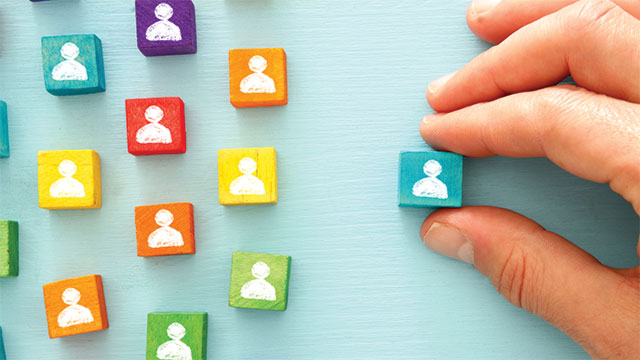While building machine learning models we are not sure which algorithm should work well with the given dataset, hence we end up trying many models and keep iterating until we get proper accuracy. Have you ever thought about getting all the basic algorithms at once to predict for model performance?
LazyPredict is a module helpful for this purpose. LazyPredict will generate all the basic machine learning algorithms’ performances on your model. Along with the accuracy score, LazyPredict provides certain evaluation metrics and the time taken by each model.
Lazypredict is an open-source python package created by Shankar Rao Pandala. Development and contribution to this are still going.
Properties of LazyPredict:
- As of now, it is only based on Supervised learning algorithms(Regression and Classification)
- Compatible with python version 3.6 and above.
- Could be run on Command Line Interface(CLI).
- Fast in predicting as all the basic model performances for the dataset is given at once.
- Has an inbuilt Pipeline to scaling and transform the data and handle missing values and change categorical data to numeric.
- Provides evaluation metrics on individual models.
- Shows the time consumed by each model to build.
In this article, I’ll be discussing how to implement LazyPredict for regression and classification models with just a few lines of code.
Installing LazyPredict:
This is very simple using pip command :
pip install lazypredict
LazyPredict for Regression
I’ll be using the Mercedes dataset from Kaggle which is a regression problem to predict the time a car will take to spend on testing each feature.
Dataset Link: https://www.kaggle.com/c/mercedes-benz-greener-manufacturing/overview
The dataset presents custom features of the cars(X0 to X385) associated with a unique ID and target variable y is the time (in seconds) the car took to pass testing for each variable.
We import the LazyPredict Supervised model wherein LazyRegressor class is present.
import pandas as pd
import lazypredict
from sklearn.model_selection import train_test_split
from lazypredict.Supervised import LazyRegressor
df = pd.read_csv('/content/drive/My Drive/datasets/mercedes.csv')
df.head()
X = df.drop(['y'], axis=1) Y = df['y'] X_train, X_test, y_train, y_test = train_test_split(X, Y, test_size = 0.2, random_state = 0) reg = LazyRegression(verbose=0,ignore_warnings=True, custom_metric=None, predictions=True) models,pred = reg.fit(X_train, X_test, y_train, y_test)
Dataset is split into dependent and independent variables where independent variables are stored in X and dependent variables in Y. Then training 80% of data and testing 20%.
models variable contain all the models with two metric values and pred contains the predictions.
Parameters used in LazyRegressor():
- verbose – by default 0
- ignore_warning – by default set to True, to avoid warning messages for any kind of discrepancy in generating models
- custom_metric – by default None, can be set to custom metrics if defined
- predictions – by default False, if set to True it’ll return predictions based on each model.
- random_state by default is set to 42.
Note that all of these parameters are optional, if not defined they will take the default values.
models output:
Total of 39 models.
For regression models in LazyPredict there are two evaluation metrics available RMSE(Root Mean Squared Error) and R2 squared error ranging from best to worst fit. The time taken is given in seconds for each model to build. Predictions for regression returned in a data frame.
prediction output:
Lazypredict for Classification
For this demonstration, I’ve taken the wine recognition dataset from scikit-learn, which is a multiclass classification(class 0, class 1, class 2) containing 13 features – Alcohol, Malic acid, Ash, Alkalinity of ash, Magnesium, Total phenols, Flavanoids, Nonflavanoid phenols, Proanthocyanins, Color intensity, Hue, OD280/OD315 of diluted wines, Proline. All of these features are numeric.
| 0 | 1 | 2 | 3 | 4 | 5 | 6 | 7 | 8 | 9 | 10 | 11 | 12 | 13 | |
| 0 | 1 | 14.23 | 1.71 | 2.43 | 15.6 | 127 | 2.80 | 3.06 | 0.28 | 2.29 | 5.64 | 1.04 | 3.92 | |
| 1 | 1 | 13.20 | 1.78 | 2.14 | 11.2 | 100 | 2.65 | 2.76 | 0.26 | 1.28 | 4.38 | 1.05 | 3.40 |
from sklearn.datasets import load_wine from lazypredict.Supervised import LazyClassifier data = load_wine() X = data.data y = data.target X_train, X_test, y_train, y_test = train_test_split(X, y,test_size=.2,random_state =0) classifier = LazyClassifier(verbose=0,ignore_warnings=True, custom_metric=None, predictions=True) models,predictions = classifier.fit(X_train, X_test, y_train, y_test)
Dataset is loaded and then separated into two variables. All the features are stored in variable X and target value in variable y. Then training 80% of the data and testing 20%.
Classifier parameters are the same as Regressor. Lastly, models are fitted.
models output:
Total of 30 models
For classification, we need to import LazyClassifier module from lazypredict.Supervised. The available evaluation metrics are – accuracy score, balanced accuracy, f1 score, and ROC AUC.
Predictions of each model:
Conclusion
LazyPredict would be very handy for selecting the more accurate model for the dataset being used from a variety of different models along with evaluation metrics within some seconds. Thereafter the best model could be tested against hyperparameters. Easy to implement and use as it performs all the preprocessing.
The complete code of the above implementation is available at the AIM’s GitHub repository. Please visit this link to find the notebook of this code.



















































































